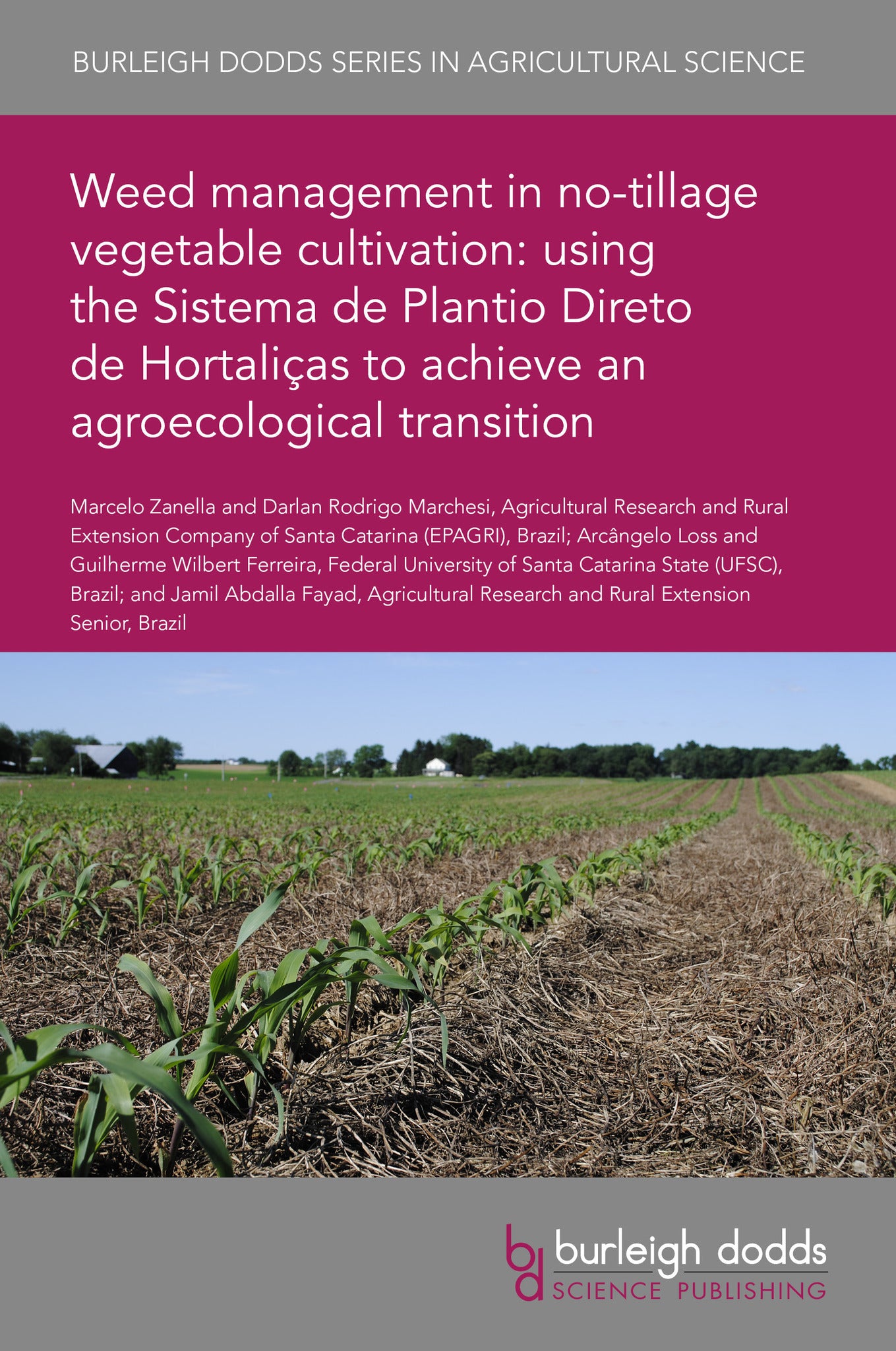We're sorry. An error has occurred
Please cancel or retry.
Weed management in no-tillage vegetable cultivation: using the Sistema de Plantio Direto de Hortaliças to achieve an agroecological transition

Some error occured while loading the Quick View. Please close the Quick View and try reloading the page.
Couldn't load pickup availability
- Format:
-
17 July 2025

This chapter describes cultivation of vegetables using the no-tillage cultivation system developed in Brazil (SPDH+: Sistema de Plantio Direto de Hortaliças). Based on agroecological principles, this allows more sustainable cultivation of vegetables without reliance on synthetic fertilizers and pesticides. The SPDH+ system is based on a holistic approach which combines vegetable cultivation with green soil cover, combining planted species with spontaneous plant growth. The chapter describes both underpinning principles and practical implementation with case studies.

TECHNOLOGY & ENGINEERING / Pest Control, Pest control / plant diseases, TECHNOLOGY & ENGINEERING / Agriculture / Sustainable Agriculture, TECHNOLOGY & ENGINEERING / Agriculture / Agronomy / Crop Science, TECHNOLOGY & ENGINEERING / Agriculture / Agronomy / Soil Science, SCIENCE / Life Sciences / Horticulture, Agricultural science, Commercial horticulture

- 1 Introduction
- 2 Promoting plant health: fundamentals
- 3 Planning for a transition to Sistema de Plantio Direto de Hortalias cultivation
- 4 The role of green cover in Sistema de Plantio Direto de Hortalias cultivation: using spontaneous plants (weeds)
- 5 Case studies: management of spontaneous plants in the cultivation of Solanaceae and Fabaceae
- 6 Case studies: management of spontaneous plants in the cultivation of Brassicae and Cucurbits
- 7 Case studies: management of spontaneous plants in the cultivation of leafy vegetables and Liliaceae (
- L.)
- 8 Case studies: management of spontaneous plants in cassava (
- and arracacha or Peruvian carrot (
- Bancroft) cultivation
- 9 Conclusion
- 10 Acknowledgements
- 11 References



